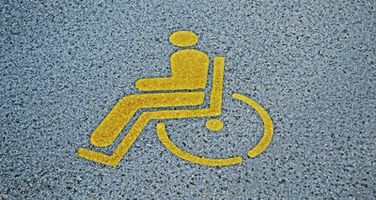
California DMV Cracks Down on Disabled Parking Fraud with New Rules: Here’s How to Renew Your Placard
The California Department of Motor Vehicles (DMV) is rolling out new measures to prevent fraudulent use of disabled parking placards. Senate Bill 611 introduces an updated process for renewing permanent disabled parking placards, aiming to ensure that only eligible individuals continue to benefit from the system.
Starting June 30, holders of permanent disabled parking placards must verify their eligibility by signing a renewal form every six years. This change is designed to crack down on the misuse of disabled placards, which has been a growing issue across the state.
What the New Law Means for You
Previously, the DMV automatically renewed permanent disabled parking placards every two years without requiring any action from the holder. The only verification occurred through random audits and cross-checks with the California Department of Public Health to ensure placards were not renewed for deceased individuals.
Under the new rules, placard holders will receive a renewal form from the DMV, which must be signed and submitted to confirm that they are still alive and in need of the placard. This renewal process applies once every six years and does not require you to recertify your disability or provide further proof of eligibility.
How to Renew Your Disabled Placard
If your placard was issued before January 2019, you’re part of the first renewal cycle under Senate Bill 611. To avoid any gaps in your parking privileges, it’s essential to renew your placard by June 30. Here’s how you can do it:
Renew Your Disabled Placard with HandicapMD.com
If you're looking for a quicker, more convenient option, you can also renew your handicap parking placard through HandicapMD.com, a trusted telemedicine service that specializes in helping people obtain and renew disabled parking permits. Here’s how the process works with HandicapMD.com:
- Create an Account: Visit the HandicapMD.com website and create an account.
- Schedule a Consultation: Book a quick telemedicine consultation with a licensed healthcare provider through the platform. You won’t need to leave your home.
- Complete the Application: The doctor will assess your condition, verify your need for a placard, and complete the necessary DMV form.
- Submit the Form: HandicapMD.com will either mail the completed form to you or directly submit it to the DMV, depending on your state’s process.
- Receive Your Placard: Once the DMV processes your renewal, you’ll receive your new placard in the mail.
Using HandicapMD.com streamlines the renewal process, particularly if you're unsure about the DMV's requirements or prefer a more personalized service. HandicapMD.com ensures that your forms are filled out correctly and on time, minimizing delays and making it easier to maintain your parking privileges.
Once you submit your signed form, the DMV will mail your new placard within 10 days if you renew online.
Senate Bill 611: An Updated Process for Renewing Permanent Disability Parking Tags
In the realm of public policy, parking accommodations for individuals with disabilities have always been a crucial focus. Accessibility is not just about compliance with regulations but about enabling those with physical limitations to have the same level of mobility and freedom as everyone else. One of the most significant tools in achieving this accessibility is the issuance of permanent disability parking tags. These tags ensure that individuals with disabilities have access to designated parking spaces that are closer to entrances, allowing for easier mobility. Senate Bill 611 introduces a much-needed update to the process for renewing these permanent disability parking tags, reflecting modern concerns of efficiency, fairness, and inclusivity. This article delves into the bill’s background, its key provisions, and the potential implications for disabled individuals and the broader community.
Background on Disability Parking Tags
Before diving into Senate Bill 611, it's important to understand the current landscape regarding permanent disability parking tags. These tags, often referred to as placards or permits, are issued to individuals who have documented disabilities that significantly affect their ability to walk. The Americans with Disabilities Act (ADA), enacted in 1990, played a pivotal role in establishing guidelines and standards for accessible parking spaces across the United States.
To qualify for a disabled parking placard, individuals must provide medical documentation or certification that verifies their disability. Once the placard is granted, it typically needs to be renewed periodically—anywhere from two to five years—depending on state regulations. While the initial process of obtaining a disability placard is relatively standardized, the renewal process has historically been fraught with inconsistencies, inefficiencies, and challenges for disabled individuals, particularly those with permanent conditions.
The Need for Reform
Over the years, disability advocates and disabled individuals themselves have raised concerns about the cumbersome nature of renewing disability parking tags. Despite having permanent disabilities, many individuals have been required to provide fresh medical documentation or face delays in the renewal process due to bureaucratic inefficiencies. This not only creates unnecessary stress for disabled individuals but also increases the administrative burden on medical professionals and state agencies.
For individuals with lifelong disabilities—such as those with spinal cord injuries, amputations, or degenerative diseases—the repeated requirement to prove their disability is not only redundant but also often viewed as an affront to their dignity. After all, a permanent disability is, by definition, unchanging. This backdrop of frustration and advocacy for a more streamlined process set the stage for the introduction of Senate Bill 611.
Key Provisions of Senate Bill 611
Senate Bill 611, introduced by Senator Jane Doe and co-sponsored by several other lawmakers, seeks to address many of the inefficiencies and burdens of the current system. The bill proposes a significant overhaul of the renewal process for permanent disability parking tags, with a focus on making the process easier, faster, and more equitable for disabled individuals.
1. Automatic Renewal for Permanent Disabilities
One of the most significant provisions in Senate Bill 611 is the introduction of automatic renewals for individuals with certified permanent disabilities. Under the new system, individuals who have already been verified as having a permanent disability by a licensed healthcare provider will no longer need to submit additional medical documentation during each renewal cycle. Instead, their disability parking tags will be automatically renewed by the issuing authority, removing the need for repeated interactions with medical professionals.
This provision is particularly important for individuals who have long-term or lifelong disabilities. Under the current system, many disabled individuals face unnecessary hurdles in obtaining new medical certifications, which can delay the renewal of their parking tags and, in some cases, leave them without necessary accommodations while the renewal is processed. Automatic renewal will alleviate these concerns and provide greater certainty for individuals who rely on these parking accommodations in their daily lives.
2. Digital and Online Renewal Options
Another key feature of Senate Bill 611 is the introduction of digital and online renewal options for disability parking tags. In today’s digital age, many government services have shifted online, allowing individuals to interact with public agencies without needing to visit physical locations. However, the renewal process for disability parking tags has lagged behind in many states, often requiring in-person visits or mailed forms.
Senate Bill 611 mandates that all states implement an online renewal option for individuals renewing their permanent disability parking tags. This option will allow individuals to submit their renewal applications, pay any applicable fees, and receive confirmation of their renewed tags through a secure online portal. For individuals with mobility issues, this digital option represents a significant improvement, allowing them to complete the renewal process from the comfort of their homes.
3. Streamlined Communication with Healthcare Providers
While automatic renewals will be available for individuals with permanent disabilities, Senate Bill 611 also recognizes that some individuals may have temporary or fluctuating disabilities that require periodic re-evaluation. To address this, the bill includes provisions for streamlined communication between state agencies and healthcare providers.
Under the new system, state agencies will be able to directly request updated medical information from an individual’s healthcare provider, reducing the burden on the individual to collect and submit these documents themselves. Additionally, healthcare providers will have access to a secure online portal where they can submit medical certifications or provide updated information about their patients’ conditions.
4. Renewal Period Extensions
Senate Bill 611 also introduces changes to the renewal periods for permanent disability parking tags. In many states, individuals with permanent disabilities are required to renew their parking tags every two to five years. However, advocates have argued that these renewal periods are unnecessarily short for individuals with lifelong disabilities.
To address this, Senate Bill 611 proposes extending the renewal period for permanent disability parking tags to a minimum of five years, with some states opting for even longer renewal cycles. By extending the renewal period, the bill aims to reduce the administrative burden on both disabled individuals and state agencies, while still ensuring that the parking system remains accessible and well-regulated.
5. Anti-Fraud Measures
Despite the many benefits that disability parking tags provide, there have been ongoing concerns about fraud and abuse of the system. Senate Bill 611 includes several provisions aimed at reducing fraud while still making the renewal process more efficient for individuals with legitimate disabilities.
One of the key anti-fraud measures in the bill is the requirement for states to implement periodic audits of disability parking tag holders. These audits will be conducted on a random basis and will require individuals to provide updated medical information or verification of their disability if selected. Additionally, the bill mandates that states introduce more secure disability parking tags with embedded technology, such as QR codes or RFID chips, to prevent the unauthorized use of disability placards.
6. Educational Campaigns and Public Awareness
Senate Bill 611 recognizes that updating the renewal process for disability parking tags will require not only changes to state regulations but also public education. To ensure that individuals with disabilities are aware of the new renewal options and requirements, the bill mandates that states launch public awareness campaigns to inform both disabled individuals and healthcare providers about the updated process.
These campaigns will include information about automatic renewals, online renewal options, and the steps individuals need to take to ensure their disability parking tags remain valid. The goal of these campaigns is to ensure a smooth transition to the new system and to reduce confusion among individuals who rely on disability parking accommodations.
Implications for Disabled Individuals
The changes introduced by Senate Bill 611 have the potential to greatly improve the lives of individuals with disabilities. By streamlining the renewal process and reducing unnecessary barriers, the bill ensures that individuals with permanent disabilities can continue to access the parking accommodations they need without undue stress or hardship.
For many disabled individuals, the automatic renewal option will be a game-changer. No longer will they need to navigate complex bureaucratic processes or repeatedly prove their disabilities to state agencies. This change not only simplifies the process but also recognizes the dignity and autonomy of individuals with permanent disabilities.
The introduction of digital and online renewal options is another significant improvement. For individuals with mobility issues or those who live in rural areas, the ability to renew their parking tags online will save time and effort, allowing them to focus on their daily lives rather than dealing with paperwork and administrative delays.
The bill’s anti-fraud measures are also important in ensuring that the disability parking system remains fair and accessible. By cracking down on fraud and abuse, Senate Bill 611 helps to preserve the integrity of the system, ensuring that parking accommodations are available to those who truly need them.
Senate Bill 611 represents a major step forward in the effort to create a more efficient, equitable, and accessible system for renewing permanent disability parking tags. By introducing automatic renewals, digital options, and streamlined communication with healthcare providers, the bill addresses many of the longstanding concerns raised by disabled individuals and their advocates.
At the same time, the bill strikes a balance between convenience and accountability, with anti-fraud measures designed to protect the integrity of the disability parking system. As states begin to implement the provisions of Senate Bill 611, disabled individuals across the country can look forward to a more streamlined, dignified, and user-friendly process for renewing their disability parking tags. The passage of this bill marks an important milestone in the ongoing effort to ensure equal access and mobility for all citizens, regardless of physical ability.
What Happens if You Don’t Renew?
If you don’t sign the renewal form, your placard will expire, and you’ll lose your disabled parking privileges. If your placard is lost, stolen, or damaged, you are entitled to receive up to four substitute placards within a two-year renewal period. However, if you need additional replacements, you’ll have to apply for a new placard and submit a new certificate verifying your disability.
Why This Change is Important
California’s disabled parking program is designed to provide essential parking privileges to those who need them most. However, fraudulent use has led to increased scrutiny. According to Steve Gordon, director of the California DMV, the new process introduced by Senate Bill 611 is necessary to prevent abuse of the system. By requiring periodic renewals with a signed form, the DMV can better ensure that placards are only issued to those who truly need them.
With an estimated 2 million people in California holding permanent disabled placards, around 1.3 million have already completed the renewal process. The DMV is urging the remaining 700,000 to sign their renewal forms promptly to avoid losing their privileges.
If you’ve moved recently, don’t forget to update your address when signing your renewal form. This ensures that the DMV can send your new placard to the correct location.
Don’t Delay – Renew Today!
Whether through the DMV or HandicapMD.com, make sure you complete your renewal process before your placard expires. By following the steps outlined here, you can ensure uninterrupted access to disabled parking and avoid any potential penalties for using an expired placard.
.png)





